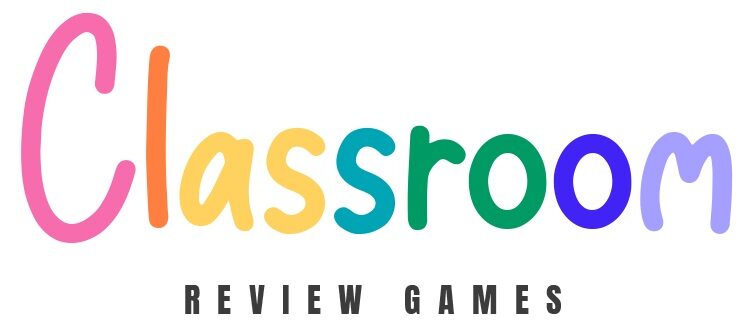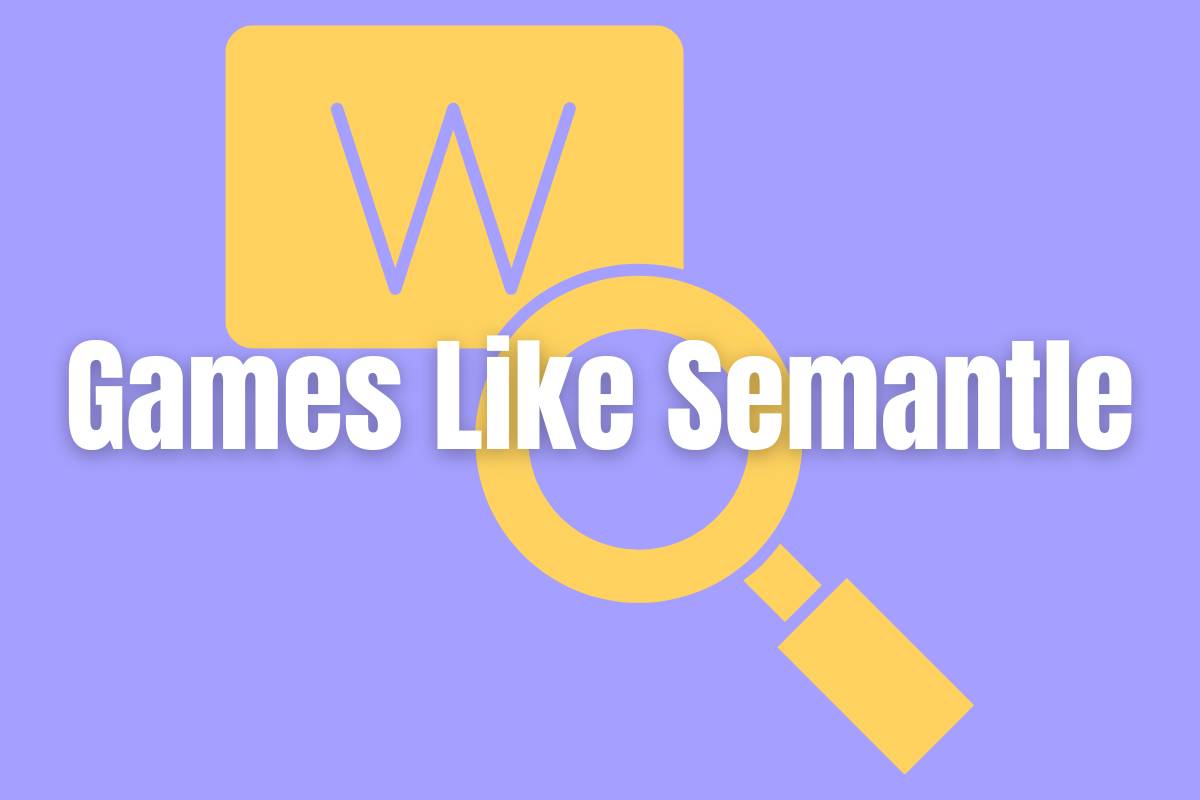9 Word Games Like Semantle
Semantle is a word puzzle game where players try to guess a target word by considering how closely words are related in meaning. The goal is to correctly identify the secret word. Each attempt should be a single word, and Semantle will provide feedback on how semantically close your guess is to the secret word. Semantle differs from other word games as it focuses on the meaning of words rather than spelling, utilizing artificial intelligence to determine this semantic similarity.
Here are 9 alternative games to Semantle that make class review or test preparation with your students fun and interactive:
1. Absurdle
Absurdle and Semantle are both word puzzle games. However, Absurdle, an adversarial version of Wordle, prolongs gameplay by adapting its target word to players’ guesses, creating a dynamic challenge. Semantle, in contrast, provides scores based on the semantic closeness of guesses to the target word, focusing more on exploring word meanings and associations. While Absurdle involves outsmarting the game itself, Semantle offers a deeper dive into linguistic relationships, each presenting a unique challenge in understanding and manipulating language.
Pros:
- Encourages deep strategic thinking beyond typical word games.
- Offers unlimited play, providing extensive practice and enjoyment.
Cons:
- The game’s design to prolong play can be frustrating as it feels like moving goalposts.
- Some players might find the elusive nature of the target word less rewarding, leading to potential disengagement.
2. Hello Wordl
Hello Wordl allows players to customize the classic Wordle game to their preferences, offering options to adjust the difficulty level and the length of the word to guess. This flexibility enables players to set their own challenges, whether they prefer a straightforward three-letter word puzzle or a more complex seven-letter challenge. Like Semantle, Hello Wordl involves guessing words, but with added personalization to suit different skill levels and gameplay preferences. This game is great for both beginners wanting to learn new words and advanced players looking for a tougher puzzle.
Pros:
- Highly customizable.
- Allows multiple plays per day, increasing engagement.
Cons:
- May not offer as deep a challenge in semantic deduction as Semantle.
- Customization might make the game too easy or too hard, impacting its educational value.
3. Kitty Letter
In Kitty Letter, players form words to create armies of cats that march towards the opponent to achieve victory. This game combines elements of word formation with real-time strategy, where each correctly spelled word translates into offensive or defensive actions against competitors. While it shares the core aspect of lexical exploration with Semantle, Kitty Letter incorporates a whimsical, competitive twist, making it engaging and entertaining. It’s an excellent choice for those who enjoy a mix of wordplay and tactical gameplay.
Pros:
- Unique combination of word-building and strategic gameplay.
- Playful theme with engaging graphics and sounds.
Cons:
- The competitive focus may not suit players looking for a more relaxed or solitary word game experience.
- The fast-paced nature of the game might overwhelm those preferring thoughtful, slow gameplay.
4. Words with Friends 2
Words with Friends 2 builds on the foundation of the classic board game Scrabble, allowing players to compete against each other by forming words on a shared board to score points. It emphasizes social interaction, as players match wits with friends or strangers in a battle of vocabulary and strategy. Like Semantle, it challenges players to think about words and their possible combinations, though in a directly competitive setting. This game is particularly popular among those who enjoy the social aspect of gaming, combining the love of language with the thrill of competition.
Pros:
- Facilitates social connections through gameplay.
- Continuously updated with new features and events to keep the game fresh and exciting.
Cons:
- The presence of in-app purchases can give some players an unfair advantage.
- Variability in opponent skill levels can sometimes result in unbalanced matches.
5. Typeshift
Typeshift offers a novel approach to word puzzles by combining elements of anagrams and word searches. Players shift columns of letters up and down to align letters in the central row to form valid words. The game requires a good vocabulary and the ability to see potential word formations within a fixed set of letters. Like Semantle, Typeshift challenges players to delve into the mechanics of word formation and to think laterally about language. It’s a cerebral game that appeals to puzzle enthusiasts looking for something beyond traditional crossword puzzles.
Pros:
- Innovative gameplay that refreshes the classic word puzzle format.
- Offers a range of difficulties, catering to both casual players and serious word aficionados.
Cons:
- Some of the puzzles may be too challenging, leading to player frustration.
- The game lacks the semantic depth that games like Semantle offer, focusing more on letter manipulation.
6. Rewordable
Rewordable is a unique card-based game where players construct words from cards containing fragments of words rather than individual letters. The goal is to form the longest and most complex words possible, using a set of shared and personal cards. This game emphasizes strategic thinking about word formation and efficient use of shared resources. Similar to Semantle, Rewordable challenges players to think about how parts of words can come together in new ways.
Pros:
- Promotes creative word-building and strategic planning.
- Suitable for group play.
Cons:
- Limited replay value due to finite card combinations.
- Can be challenging for players not skilled in word games.
7. QI’s Quite Interesting Word Game
Developed in conjunction with the popular British panel show “QI,” this game involves players answering questions or solving puzzles that often have quirky or unexpected answers, typically related to word meanings and usage. While it incorporates trivia elements, its core revolves around a deep understanding of language, similar to how Semantle encourages exploration of semantic fields.
Pros:
- Combines word knowledge with fun and quirky trivia.
- Educational and entertaining, suitable for players who enjoy learning while playing.
Cons:
- The trivia aspect might overshadow the word puzzle element for some.
- Relies on a certain cultural knowledge base, which might limit accessibility.
8. Boggle With Friends
Boggle With Friends brings the classic Boggle game into the digital age, allowing players to find as many words as possible from a randomly generated grid of letters within a set time limit. Players compete against friends or random opponents online, trying to score higher by finding longer or more complex words. This game shares the fast-paced, word-finding challenge with Semantle, though with a focus on quick thinking and rapid associations.
Pros:
- Fast-paced and highly competitive, ideal for quick gaming sessions.
- Vocabulary practice and quick-thinking skills.
Cons:
- Time pressure might not appeal to players who prefer more contemplative word games.
- Competitive element can be intense, potentially deterring more casual players.
9. Letterpress
Letterpress is a strategic word game where players take turns forming words to capture tiles on a 5×5 grid. The strategy lies in selecting words that will maximize your control over the board while minimizing opportunities for your opponent. It combines vocabulary skills with strategic territory control, akin to a blend of Scrabble and a strategic board game, emphasizing the tactical use of language similar to the challenges in Semantle.
Pros:
- Mixes word creation with strategic gameplay, offering depth and replayability.
- Minimalistic design that’s easy to learn but challenging to master.
Cons:
- Can be difficult for those who are not strategic thinkers.
- May require a large vocabulary to be competitive, potentially discouraging for newer players.
Comparison Chart
| ame | Features | Pros | Cons |
|---|---|---|---|
| Absurdle | Adversarial word game with dynamic target word | Encourages strategic depth, unlimited play | Can be frustrating, less immediate reward |
| Hello Wordl | Customizable word lengths and difficulty levels | Customizable difficulty, multiple daily plays | May lack depth in word complexity, customization impacts challenge level |
| Kitty Letter | Word formation creates armies of cats for battle | Unique gameplay combining words and strategy, engaging and humorous theme | Competitive element might not appeal to all, can be chaotic |
| Words with Friends 2 | Multiplayer game based on Scrabble mechanics | Facilitates social connections, continuously updated with new features | In-app purchases can give some players an unfair advantage, variability in opponent skill levels |
| Typeshift | Combines anagrams and word searches | Innovative gameplay, caters to casual and serious word aficionados | Some puzzles may be too challenging, lacks semantic depth |
| Rewordable | Card-based game where players construct words from cards | Promotes creative word-building and strategic planning | Limited replay value due to finite card combinations, challenging for non-word game aficionados |
| QI's Quite Interesting Word Game | Trivia and word meaning puzzles | Combines word knowledge with fun and quirky trivia, educational | Trivia aspect may overshadow word puzzles, relies on cultural knowledge |
| Boggle With Friends | Find words in a randomly generated grid of letters | Fast-paced and highly competitive, enhances vocabulary and quick-thinking skills | Time pressure might not appeal to all, intense competition can deter casual players |
| Letterpress | Strategic word game with territory control | Mixes word creation with strategic gameplay, minimalistic design easy to learn but challenging to master | Difficult for non-strategic thinkers, requires large vocabulary to be competitive |

